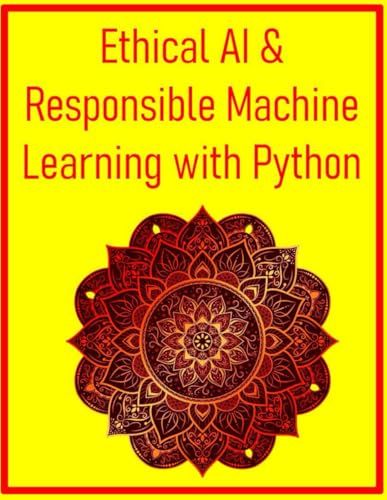Understand the Principles of Ethical AI: Learn why ethics is critical in AI development and how principles like fairness, transparency, accountability, and privacy can be practically applied to machine learning systems.
Identify and Address Bias in Machine Learning: Discover the different sources and types of bias in datasets and models, and gain hands-on skills to detect, measure, and interpret bias using Python-based tools and metrics.
Apply Fairness Metrics to Evaluate ML Models: Learn how to choose and implement fairness metrics such as demographic parity, equal opportunity, and predictive equality to assess the ethical impact of your models.
Implement Bias Mitigation Techniques: Explore proven pre-processing, in-processing, and post-processing strategies to reduce unfairness in machine learning systems, and apply them using tools like AIF360 and Fairlearn.
Build Explainable AI Systems: Understand the importance of explainability in AI and how to make machine learning models more interpretable using both model-specific and model-agnostic techniques with libraries such as LIME and SHAP.
Visualize and Communicate Model Behavior: Gain practical experience generating visual explanations and summaries that help stakeholders understand model decisions, improve trust, and meet compliance standards.
Strengthen ML Privacy and Security: Learn how to protect user data and mitigate privacy risks by implementing techniques like differential privacy, federated learning, and homomorphic encryption in your ML workflows.
Evaluate and Defend Against Adversarial Threats: Understand common adversarial attacks on machine learning models and apply countermeasures to improve model robustness using Python libraries such as ART and CleverHans.
Design Accountable AI Workflows: Discover how to create audit-ready documentation artifacts like model cards and datasheets, and incorporate traceability and reproducibility into your development pipeline.
Integrate Ethics into MLOps Pipelines: Learn how to operationalize responsible AI practices by embedding fairness, explainability, and privacy checks into continuous integration and deployment (CI/CD) systems.
Monitor and Maintain Ethical AI in Production: Develop strategies for tracking model performance and fairness over time, detecting ethical drift, and retraining models responsibly as data evolves.
Foster Responsible AI Culture in Organizations: Explore how diverse teams, ethical review boards, and clear communication practices can help build a sustainable and accountable AI development culture.
Apply Python to Real-World Responsible AI Projects: Work through end-to-end case studies that apply responsible AI principles to real-world scenarios in finance, healthcare, recommender systems, and NLP.
Stay Informed on AI Ethics Trends and Regulations: Gain awareness of current and emerging global AI regulations, ethical frameworks, and industry standards that impact how AI systems are built and governed.
Build a Long-Term Ethical AI Skillset: Equip yourself with tools, resources, and best practices to continue learning and adapting in the rapidly evolving field of ethical AI and responsible machine learning.
